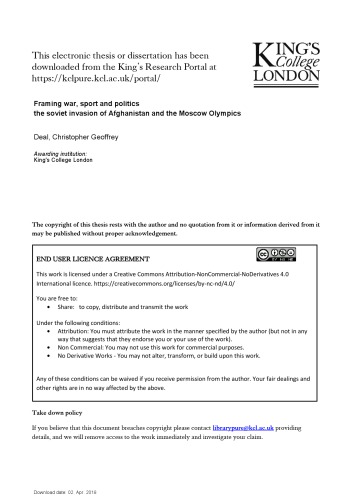

Most ebook files are in PDF format, so you can easily read them using various software such as Foxit Reader or directly on the Google Chrome browser.
Some ebook files are released by publishers in other formats such as .awz, .mobi, .epub, .fb2, etc. You may need to install specific software to read these formats on mobile/PC, such as Calibre.
Please read the tutorial at this link: https://ebookbell.com/faq
We offer FREE conversion to the popular formats you request; however, this may take some time. Therefore, right after payment, please email us, and we will try to provide the service as quickly as possible.
For some exceptional file formats or broken links (if any), please refrain from opening any disputes. Instead, email us first, and we will try to assist within a maximum of 6 hours.
EbookBell Team

0.0
0 reviewsThis thesis explores the reporting of the Soviet international broadcaster Radio Moscow, and how it represented to listeners worldwide the 1979 Soviet invasion of Afghanistan and the subsequent US-led boycott campaign against the 1980 Moscow Olympic Games. In doing so, it builds on literature that has examined Cold War radio broadcasting, the Soviet invasion of Afghanistan, and the politics surrounding the Moscow Olympic Games. Specifically, this thesis sheds new light on the outputs of Soviet broadcasting, and on the ways the Soviet Union tried to justify their actions and condemn the actions of the US to different audiences worldwide. Using the BBC Monitoring Service material archived at Imperial War Museums, Duxford, and applying the concept of frame analysis, this thesis concentrates on six key moments after the Soviet invasion of Afghanistan in the build-up to the Moscow Olympics. It provides not only examples of how Radio Moscow reported specific events, but how the reporting evolved over time. In addition, the use of transcripts from broadcasts to multiple target audiences provides evidence of how Soviet broadcasting was adapted to appeal to different listeners worldwide, allowing for a comparison of reporting between regions, as well as over time, and to build understanding of how the Soviet Union viewed the world in 1980.